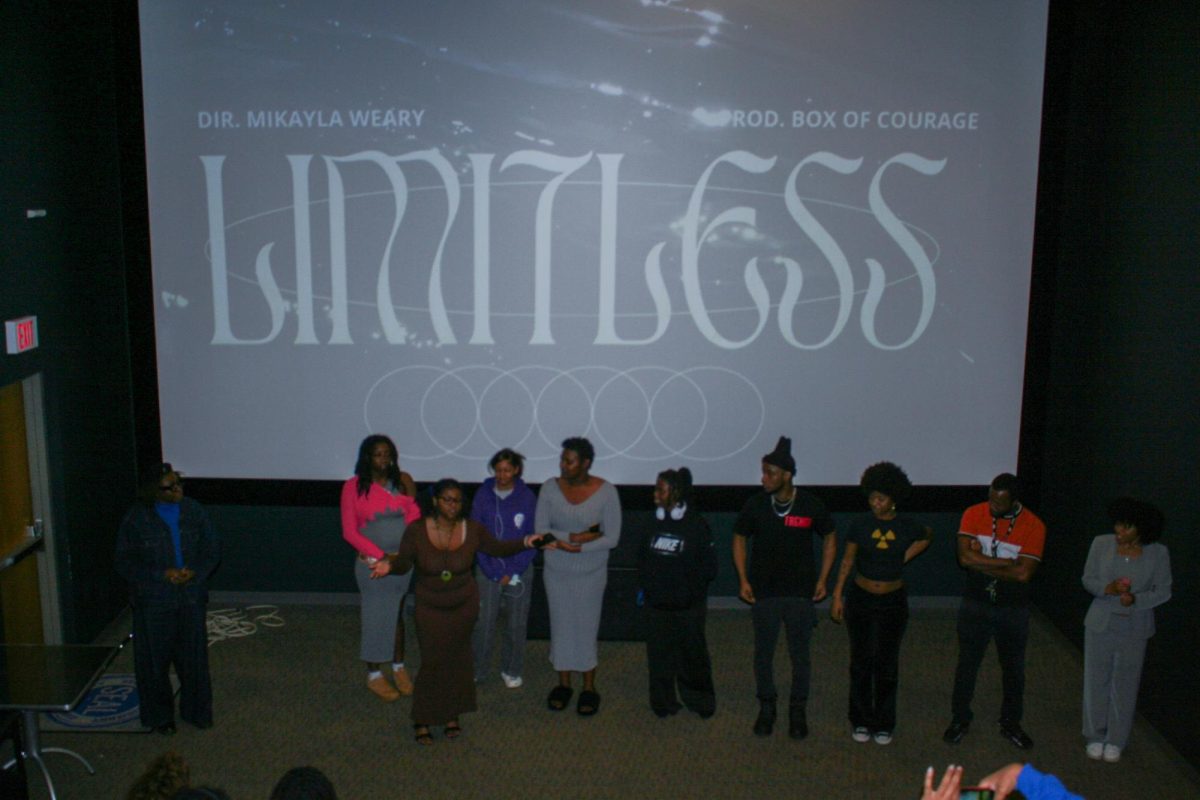The New Orleans Public Housing Controversy
Constant protest and rallies continue as former New Orleans public housing tenants are enraged after more than a year after Hurricane Katrina, many of the city’s largest housing developments remain closed and untouched. Many strongly believe that rebuilding New Orleans represents the housing and urban development challenge of a lifetime. But the U.S. Department of Housing and Urban Development has thus far offered the city little beyond business as usual, boarding up the public housing projects, dispensing block grant dollars, and offering limited mortgage relief to FHA-insured homeowners.
What angers many displaced residents and those with lower income brackets who want to return to the Crescent City is the fact that there is a major shortage in available housing, especially for the economically impoverished.
“The city needs HUD’s help to bring damaged housing back into use as quickly as possible, at the same time the city crafts a longer term strategy for developing new, high-quality affordable housing,” said Times Picayune reporter Margery Austin Turner.
The New Orleans Housing Authority, which is currently run by the U.S. Department of Housing and Urban Development, are said to reportedly repair all salvageable developments and have them ready to go sometime this year. Several of the housing projects, however, are arguably obsolete, and are not scheduled for renovation or reopening. However, until this happens, avid protesters are being persistent and relentless as former tenants and supporters are going to continue to fight HUD and the New Orleans Housing Authority until all habitable houses and apartments are available for immediate occupancy.
Developments in Question
B.W. Cooper, C.J. Peete, Lafitte, and St. Bernard public housing developments are the largest four housing developments in the city that are in question. Billed as a strategy for relieving the entrenched poverty of the city’s urban slums, it is based on familiar arguments about the alienating effects of large-scale postwar inner-city housing. Recently, residents were let in the St. Bernard housing projects for the first time since the storm to salvage their belongings and clean out their units. But that’s all they could do according to the New Orleans Public Housing Authority and HUD, who have declined to comment on all matters as it regards to the reopening of public housing in the city of New Orleans, however, tenants say they will return daily until they can return to their homes. One woman proudly states that she had lived in the St. Bernard housing projects for over 40 years; a far cry for the length of time a tenant is to initially occupy a Section 8 unit, which is designed to help people get off their feet and eventually move on.
“The system really will take shape when people stop taking advantage of the system, and realize that it is only a temporary stay, not a lifelong residence,” said Doondra Oliver, Senior public health major from Franklin, La. “It is hard for me to understand why some people want to come back to such fetid conditions.”
However, it is clear, that this has erupted into a generational way of life, and those who lived in these units are fighting to return to their homes.
“To the extent that there are no alternative accommodations available in New Orleans, said attorney Rachel Wisdom on behalf of HANO officials and administrators, HANO certainly has no duty to provide plaintiffs with housing in New Orleans. It is an unfortunate result of the hurricane that many people who would like to live in New Orleans simply cannot do so at the present time,” Wisdom continued, “Plaintiffs have been provided with housing vouchers to use anywhere they want, whether in New Orleans, as some have done, or in nearby Louisiana communities or those out of state.” According to the United Front for Affordable Housing, by approving $34.5 million in tax credits for those four projects, members of the UFAH said, the housing agency is virtually guaranteeing that thousands of people who lived in those developments before Katrina will never be able to return to New Orleans. They said most of the units survived the hurricane in good shape and could easily be put back into commerce.
A Proposed Vision
Public housing advocates have consistently placed a hold on developers and their grant awards in their efforts to come in and demolish the existing public housing infrastructure and construct mixed income housing on these sites. If that plan were to come into place, the four projects will create 1,853 mixed-income apartments, some of which will fetch more than $1,000 a month, while others will be rent subsidized. Those units are expected to replace about 3,000 public housing apartments that typically rented for just $85 a month.
“You have people with fixed incomes next to people making minimum wage, and then people who may make three or four times than the lowest-income people,” said Peter Werwath, Consulting Business director for Enterprise Community Partners Inc.
Will this Vision Work?
Many feel that this plan is too costly for returning displaced housing development residents who are already in a financial strain. Housing agency members sympathized with the protesters, including several former residents who said they can’t find affordable housing in the city. But they refused to extend the process, saying any further delays could jeopardize the developers’ ability to use the credits.
“This would be a good thing for this city, however, I really believe that it would be a very challenging thing to do,” said Britni Hill, International Business and Spanish major from Shreveport Louisiana. “These people will simply not be able to afford this form of housing, and it will detour displaced residents from returning to the city.”
With two very controversial sides of the issue, both which carry strong beliefs, several New Orleanians are prepared for a change, especially when it comes to the city’s already crippled public housing system after decades of mismanagement. “It’s a hard issue,” said board Chairman Wayne Woods, one of two housing agency members from New Orleans. “Yeah, the buildings may be structurally sound, but what about the quality of life there? At St. Bernard, for example, there was abject poverty and high crime. Do we want to replicate that?” As board chairman Woods puts it, these are the exact thoughts that run though the minds of many New Orleans residents on the rebirth of these developments. What plans must be put into place to thwart the same issues as in the past with the city’s public housing system?
Future Plans
Despite the controversy, Woods said the approvals represent a huge step forward for New Orleans, where developers were granted $63.7 million in tax credits to create 5,074 apartment units. New Orleans projects accounted for 79 percent of all the credits handed out at the end of last year, compared to 10.8 percent in Jefferson Parish, which was No. 2 on the list with $8.7 million in credits. St. Tammany got $4.3 million in credits, or 5.3 percent of the total. Three parishes in southwestern Louisiana received a total of about 5 percent of the credits according to Knowledge Plex and local sources.
“Clearly, the city needs a wider array of interim housing solutions, and HUD should be helping to develop and deploy them – including trailers, modular housing, dormitories in vacant schools and shopping malls, and vouchers to help families pay for rental units in the private market,” said Margery Austin Turner from the Times Picayune. “There’s been a lot of controversy about who should be allowed to return to public housing. Secretary Jackson’s off-hand proposal to reserve public housing for “the best people” didn’t help. Instead, HUD should sit down with city officials and tenant advocates to hammer out fair criteria for returning public housing residents – possibly excluding anyone who engages in criminal activity and giving priority to people who are willing to work.”
Activists and residents have condemned the government’s refusal to re-open the city’s public housing projects and point out that while tourist areas are being developed; affordable housing is not being built according to the planning and development network.
Plans are without question in place to begin the mixed income housing process on these sites which can take as long as three years to successfully complete, according to HUD Secretary Alphonso Jackson. Advocates say that this is a plan to “keep them out” and ease certain residents in. Locked out of the planning process, they fear the planned demolitions are part of a broad effort to prevent displaced poor people from returning to New Orleans. “This demolition strategy is not new. It is part of a long-standing campaign to dismantle the nation’s public housing system that began in the 1970s,” said New York Times journalist Nicolai Ouroussoff. “That campaign was based on the valid belief that the concentration of the poor into segregated ghettos condemned them to a permanent cycle of poverty, crime and drugs. Specifically, it was directed at the large-scale postwar housing developments that became a fixture of American cities in the 1960s.”
Despite all the vocal displays and protest by former tenants, activist and public housing advocates in an effort to return and retain occupancy in these developments, HUD is not hearing it, and declined any further commentary on the situation. It is almost crystal clear that the developers will come out victorious at the end of the day in an effort to redefine the New Orleans Public Housing Development landscape. “This is a fool’s game. The challenge in New Orleans is to piece together the fragments of a shattered culture,” said Ouroussoff. “Sadly, HUD’s plan manages to trivialize the past without engaging the painful realities that have shorn this city apart.”





























